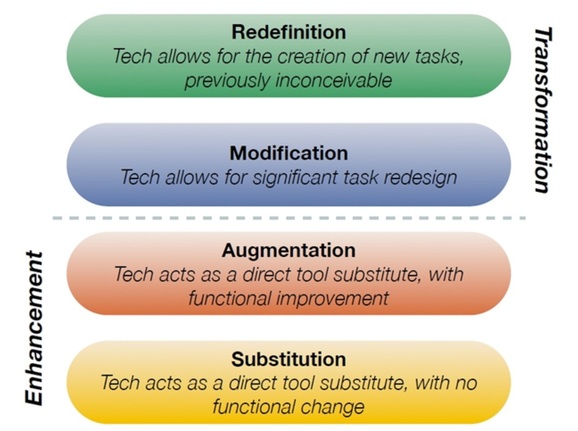 Supporting this underlying philosophy is the SAMR model introduced by Ruben R. Puentedura, Ph. D. As a district we are using the SAMR model as a guiding resource for integrating technology at all grade levels. As learning experiences are transformed, the SAMR model guides educators in their development of technology based activities.
Supporting this underlying philosophy is the SAMR model introduced by Ruben R. Puentedura, Ph. D. As a district we are using the SAMR model as a guiding resource for integrating technology at all grade levels. As learning experiences are transformed, the SAMR model guides educators in their development of technology based activities.How do you use technology with your students? There is no right or wrong. Sometimes technology serves its purpose when simply substituting. Practicing math facts on an iPad can be more exciting than traditional paper and pencil (SAMR - Substitution). Creating a video for classmates on an iPad using Educreations to explain how to add two numbers (SAMR- Modification) provides a very different learning experience. Both are valuable and support the mathematics curriculum.
Over the past few years many SAMR resources have been developed. Kathy Schrock's Guide to Everything offers a great collection for educators. It is a great site to explore and learn more about the SAMR model and to find resources that will help you design some great content-based projects using technology for your students.
